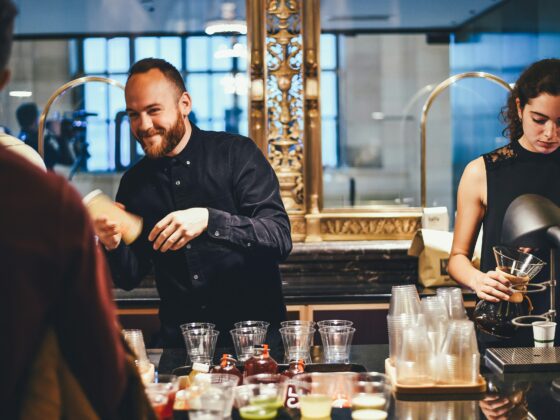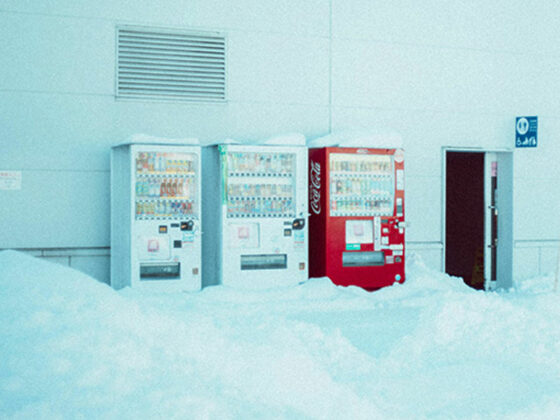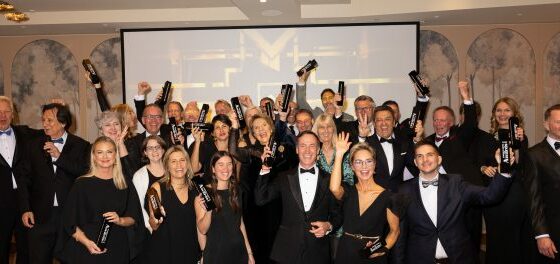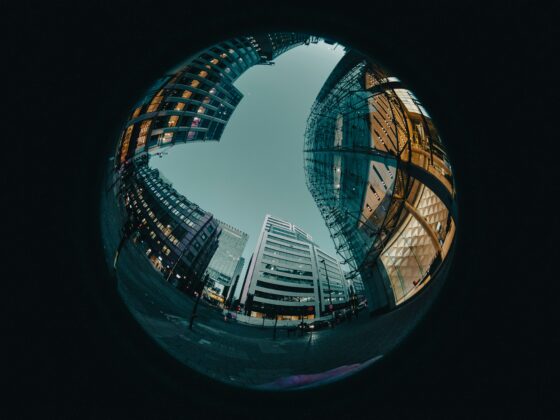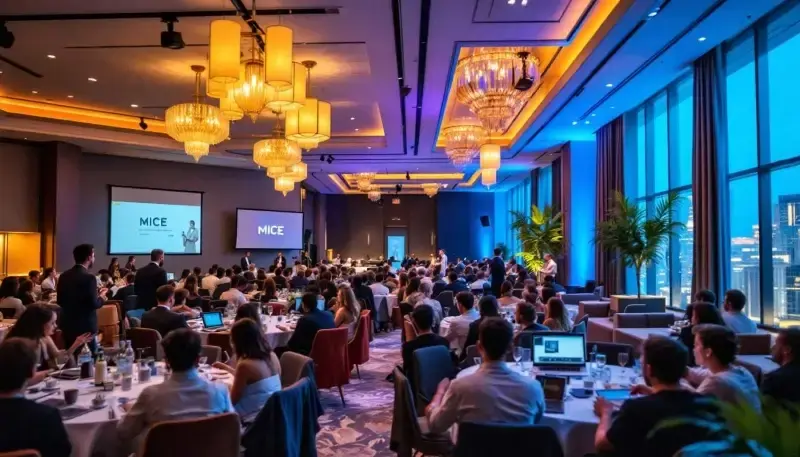
In the fast-paced world of hospitality, standing out means offering more than just rooms—it’s about creating experiences. This is where MICE (Meetings, Incentives, Conferences, and Events) transforms hotels into hubs for business and collaboration. The global MICE market is projected to reach $1.4 trillion by 2028, underscoring its sustained growth and importance. By hosting MICE events, hotels can boost revenue, fill rooms during off-peak seasons, and position themselves as market leaders.
Yet, capturing the MICE market requires more than just event spaces. Today’s clients expect seamless execution, unforgettable experiences, and innovative approaches to hosting. Understanding the dynamics of MICE and its impact is the first step to turning this opportunity into a key driver of hotel success.
In this article, we’ll unpack what MICE entails, its importance to the hospitality sector, the benefits it brings, and the trends shaping its future.
What does MICE mean in hospitality?
MICE, an acronym for Meetings, Incentives, Conferences, and Events, represents a vital hospitality and tourism industry segment. It refers to the planning, organizing, and executing large-scale gatherings, often focusing on business and professional objectives.
Let’s take a closer look at each component of MICE:
-
Meetings: Small to large gatherings of people, often in a corporate or professional setting, to discuss and achieve specific objectives. Like board meetings or strategy sessions hosted in a hotel conference room.
-
Incentives: Reward programs designed to motivate employees or partners by offering travel experiences. Such as a luxury retreat for top-performing sales teams that features accommodations, dining, and recreational activities.
-
Conferences: Larger, formal gatherings often include presentations, networking, and knowledge sharing within a specific industry or interest group. For example, annual industry expos where hotels provide exhibition spaces and breakout rooms.
-
Events: A broad category that encompasses celebrations, product launches, and social or cultural occasions. Like a fashion showcase or gala dinner hosted at a hotel ballroom.
The MICE sector is not just about hosting events; it’s about creating opportunities. These gatherings bring diverse groups of people together, often driving significant economic impact for both hotels and the local economy. A well-organized MICE program not only enhances a hotel’s reputation but also fosters long-term partnerships with corporate clients.
Why is MICE important? The answer lies in its dual benefit of boosting hotel occupancy and creating an ecosystem where businesses thrive. For hospitality professionals, understanding and catering to the nuances of MICE is essential to capitalizing on its potential.
Why MICE matters for hotels
Once we understand MICE, its value for the hospitality industry becomes evident. For hotels, the MICE sector is not just an additional revenue stream—it’s a strategic avenue to enhance their offerings, maintain steady business, and foster stronger industry connections.
Why is prioritizing MICE is essential
1. Revenue growth
MICE events represent a substantial revenue stream, combining room bookings, venue rentals, catering, and ancillary services. Unlike transient guests, MICE attendees contribute to multiple facets of a hotel’s income. According to a Grand View Research report, the global MICE market size was estimated at USD 802.59 billion in 2023 and is expected to grow at a CAGR of 9.1% from 2024 to 2030. Moreover, MICE often peaks during off-seasons, ensuring more consistent cash flow year-round.
2. Optimized use of space
Event spaces, ballrooms, and meeting rooms are often underutilized without MICE. These valuable areas can sit idle for extended periods, representing lost revenue potential. By hosting MICE events, hotels ensure these spaces are consistently in demand, maximizing their return on investment. Furthermore, MICE opens up creative opportunities to leverage other spaces—such as terraces, courtyards, or lobbies—that might otherwise remain unutilized, transforming them into unique venues for specific events.
3. Stronger corporate relationships
The MICE sector thrives on long-term partnerships. Hosting successful events positions hotels as trusted partners for corporations and event planners. These relationships often lead to repeat bookings and cross-promotional opportunities, creating a sustainable business pipeline while reinforcing trust and loyalty.
4. Enhanced brand reputation
A hotel that excels in hosting MICE events gains recognition as a go-to venue for businesses and organizations. High-profile conferences, exhibitions, or incentives enhance visibility and credibility, attracting further interest from other corporate clients. Successful MICE events significantly boost a hotel’s reputation, amplifying its visibility and credibility within the industry.
5. Operational efficiency and service enhancements
To meet the unique demands of MICE clients, hotels often upgrade their operational systems, from event management software to on-site audiovisual solutions. These enhancements streamline the MICE experience and improve the overall guest experience. Additionally, staff trained to handle high-pressure events become better equipped to deliver exceptional service across all guest interactions.
Hotels that embrace MICE as a strategic focus stand to benefit significantly. The MICE sector offers a path to long-term success, from steady revenue growth to improved operations. Understanding these advantages positions hoteliers to stay competitive, cater to evolving client needs, and establish themselves as leaders in the hospitality industry.
Key benefits of MICE for hotels
MICE brings a wealth of advantages to hotels, shaping operations, guest experiences, and market positioning. Here are the key benefits:
-
Elevated guest experiences: MICE events drive hotels to deliver tailored services, such as custom catering and cutting-edge audiovisual solutions, which enhance the overall guest experience for all travelers.
-
Diverse clientele: Hosting MICE attracts high-value clients from various industries, exposing hotels to market segments they might not typically serve and increasing the likelihood of future bookings.
-
Long-term revenue streams: Successful MICE events often lead to repeat business, with corporate clients and event planners returning annually or for multiple projects, creating a reliable income source.
-
Innovation and adaptability: Meeting the demands of MICE encourages hotels to adopt new technologies, optimize spaces, and cater to hybrid or virtual event formats, showcasing their ability to evolve with market trends.
-
Strengthened industry presence: By hosting impactful events, hotels build visibility and credibility among corporate partners, community organizations, and industry leaders, solidifying their position as key players in hospitality.
-
Cross-selling opportunities: MICE attendees are exposed to on-site amenities like restaurants, spas, and leisure services, opening doors for additional revenue during their stay and in the future.
The benefits of MICE extend beyond short-term profitability. By leveraging its potential, hotels can innovate, build stronger relationships, and position themselves for sustained success in the competitive hospitality market.
Overcoming challenges and adapting to MICE trends in 2025
While the MICE sector offers immense opportunities, it also comes with unique challenges that hoteliers must navigate to stay competitive. Additionally, staying ahead of emerging trends is key to leveraging MICE as a strategic advantage. Here’s a closer look at the challenges and trends shaping the future of MICE in hospitality:
Challenges in the MICE industry
-
Intense competition: The growing popularity of MICE tourism has led to increased competition among hotels, requiring innovative strategies to stand out.
-
High client expectations: Event organizers demand seamless service, unique experiences, and advanced technology. Failing to meet these expectations can result in lost opportunities.
-
Seasonal demand fluctuations: MICE events often align with specific times of the year, leaving hotels to manage uneven demand and occupancy rates.
-
Operational complexity: Managing large-scale events involves logistical challenges, from coordinating resources to ensuring exceptional service delivery across all touchpoints.
-
Sustainability expectations: As eco-consciousness grows, MICE clients increasingly prioritize venues with green initiatives. Hotels must adopt sustainable practices to attract these clients.
Trends driving the future of Meetings & Events
The MICE industry continues to evolve, shaped by changing client demands and technological advancements. To stay ahead, hotels must adapt to these key trends shaping the industry:
1. Hybrid events: expanding reach and accessibility
Hybrid events, which combine in-person and virtual components, are becoming a core offering in MICE. These events allow organizers to expand their reach by engaging audiences both locally and globally, all while offering flexibility for attendees. According to insights from PeakView Stories, hybrid events are not just a response to pandemic-driven changes but are now an integral part of how businesses operate, with hotels needing advanced technology to support this shift.
2. Sustainability: the eco-friendly imperative
Sustainability has moved from a bonus to a necessity in the MICE sector. Clients actively seek venues that implement eco-conscious practices, such as energy-efficient systems, waste reduction programs, and locally sourced catering. Research shows that sustainability is a key factor for event organizers, with hotels embracing green initiatives benefiting from a competitive edge.
3. Personalization: crafting tailored experiences
Personalization is becoming a cornerstone of successful MICE events. Attendees now expect tailored experiences that cater to their specific needs, whether it’s customized agendas, personalized communication, or exclusive offerings. Hotels that harness data analytics to understand and meet these expectations improve attendee satisfaction and foster long-term client loyalty.
4. Prioritizing health and well-being
Wellness is becoming a priority in the MICE sector as clients seek more holistic event experiences. Features like healthy catering, fitness sessions, and relaxation areas are now highly sought after. According to Business Traveler USA, this trend reflects broader societal shifts towards well-being and allows hotels to attract health-conscious clients while elevating the overall event experience.
Navigating these challenges and trends requires strategic investments and a proactive approach. By staying informed and adaptable, hotels can overcome obstacles and position themselves as leaders in the evolving MICE landscape.
The role of technology in maximizing MICE success
Adapting to the evolving MICE landscape and fully reaping its benefits requires more than just great spaces and service—it demands the right technology. As the demands of the MICE sector grow, tools that streamline operations, enhance client relationships, and optimize resource use have become essential for hoteliers.
This is where Thynk Meetings & Events comes in. Thynk’s suite of hospitality solutions empowers hotels to capitalize on MICE opportunities by simplifying the entire process—from quoting and proposing to managing event operations and post-event analysis. By leveraging smart data and automation, Thynk helps sales teams save time, increase efficiency, and deliver exceptional client experiences.
In a dynamic and competitive market, having the right technology ensures that hotels can not only meet current client expectations but also adapt seamlessly to future trends such as hybrid events, personalization, and sustainability.
Final thoughts on MICE
The MICE sector is a cornerstone of the hospitality industry, offering unmatched opportunities for hotels to drive revenue, optimize underutilized spaces, and build long-term relationships with corporate clients. The meetings and events industry is projected to flourish in 2025, with meeting professionals expressing confidence in its future and noting planned increases in meeting budgets. However, with rising client expectations and evolving trends like hybrid events, sustainability, and personalization, success in MICE requires more than just offering event spaces—it demands strategic planning and innovation.
By understanding the importance and benefits of MICE, addressing its challenges, and staying ahead of emerging trends, hotels can position themselves as leaders in this lucrative segment. Leveraging the right technology is the final piece of the puzzle, enabling hotels to streamline operations, enhance guest experiences, and adapt to a shifting market landscape.
Now is the time for hoteliers to invest in solutions that unlock MICE’s full potential and secure a competitive edge in the hospitality industry.


